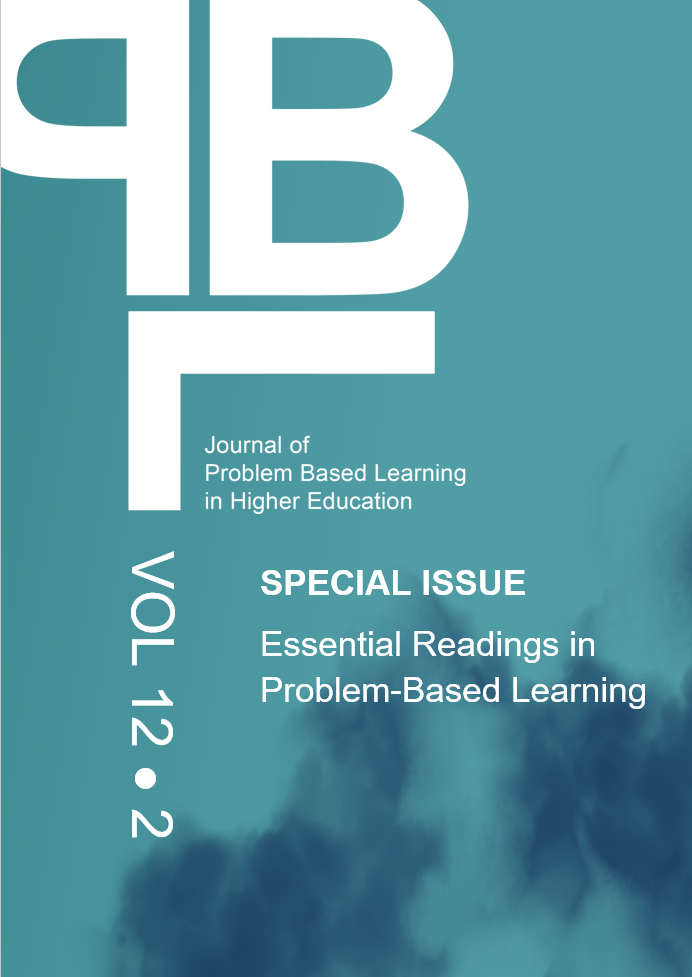Abstract
This paper presents a personal introduction to Knud Illeris’ Problemorientering og deltagerstyring – oplæg til en alternativ didaktik [Problem-orientation and participant-direction – a draft for an alternative didactic], published first in 1974. Illeris is one of the founding fathers of PBL in Denmark, and 50 years after its first publication it seems fitting to re-read the book, and I hope others will do the same. Introduced to PBL as something sprawling from the counterculture, youth rebellion, and progressive pedagogies, I found Illeris’ book to be both inspiring and a bit underwhelming, and in many cases foreshadowing neoliberal conceptions of outcome-based education.
References
Barnett, R. (2024). Can we please stop talking about ’Bildung’—and for that matter, too, ’the Humboldtian university’? Journal of Praxis in Higher Education, 6(3), 45–66. https://doi.org/10.47989/kpdc464
Callahan, R. E. (1964). Education and the cult of efficiency: A study of the social forces that have shaped the administration of the public schools (Paperback). University of Chicago Press.
Clausen, N. R. (2023). Self-Directed Learning in Problem-and Project-Based Learning: A Study of Self-Direction in the Aalborg PBL Model. Aalborg Universitetsforlag. https://doi.org/10.54337/aau679676715
Cuban, L. (1986). Teachers and machines: The classroom use of technology since 1920. Teachers College Press.
Gundem, B. B., & Hopmann, S. (Eds.). (1998). Didaktik and/or Curriculum: An International Dialogue. P. Lang.
Hultqvist, K. (2008). ‘Fremtiden’ som styringsteknologi og det pædagogiske subjekt som konstruktion. In L. Halkier, L & J. Krejsler, (Eds.), Pædagogikken og kampen om individet – Kritisk pædagogik, ny inderlighed og selvets teknikker. (pp. 159-189). København: Hans Reitzels Forlag.
Illeris, K. (1974/1978). Problemorientering og deltagerstyring: Oplæg til en alternativ didaktik (2. udg). Munksgaard.
Illeris, K. (1981). Modkvalificeringens pædagogik: Problemorientering, deltagerstyring of eksemplarisk indlæring. Unge pædagoger.
Labaree, D. F. (2008). The Winning Ways of a Losing Strategy: Educationalizing Social Problems in the United States. Educational Theory, 58(4), 447–460. https://doi.org/10.1111/j.1741-5446.2008.00299.x
Ogburn, W. F. (1922). Social change with respect to culture and original nature. New York: B.W. Huebsch, Inc.
Peters, M., Jandrić, P. & Hayes, H. (2018). The curious promise of educationalising technological unemployment: What can places of learning really do about the future of work? Educational Philosophy and Theory, 51(3), 242-254. https://doi.org/10.1080/00131857.2018.1439376
Rosa, H. (2015). Social acceleration: A new theory of modernity (J. Trejo-Mathys, Trans.; Paperback ed). Columbia University Press.
Servant, V. F. C. (2016). Revolutions and Re-iterations: An Intellectual History of Problem-based Learning [PhD Thesis]. Erasmus University Rotterdam.
Servant-Miklos, V. F. C. (2019). Fifty Years on: A Retrospective on the World’s First Problem-based Learning Programme at McMaster University Medical School. Health Professions Education, 5(1), 3–12. https://doi.org/10.1016/j.hpe.2018.04.002
Sørensen, K. A. (2023). What is the educational purpose of problem-oriented project-based learning? Reading the discursive construction of the educational aims and purposes of problem-oriented project-based learning in textual introductions from 1974-2018. Roskilde Universitet. Afhandlinger fra Ph.d.-skolen for Mennesker og Teknologi.
Tanizaki, J. (with Moore, C., & Harper, T. J.). (1977). In praise of shadows (T. J. Harper & E. Seidensticker, Trans.). Leete’s Island Books.

This work is licensed under a Creative Commons Attribution 4.0 International License.
Copyright (c) 2024 Anders Melbye Boelt
